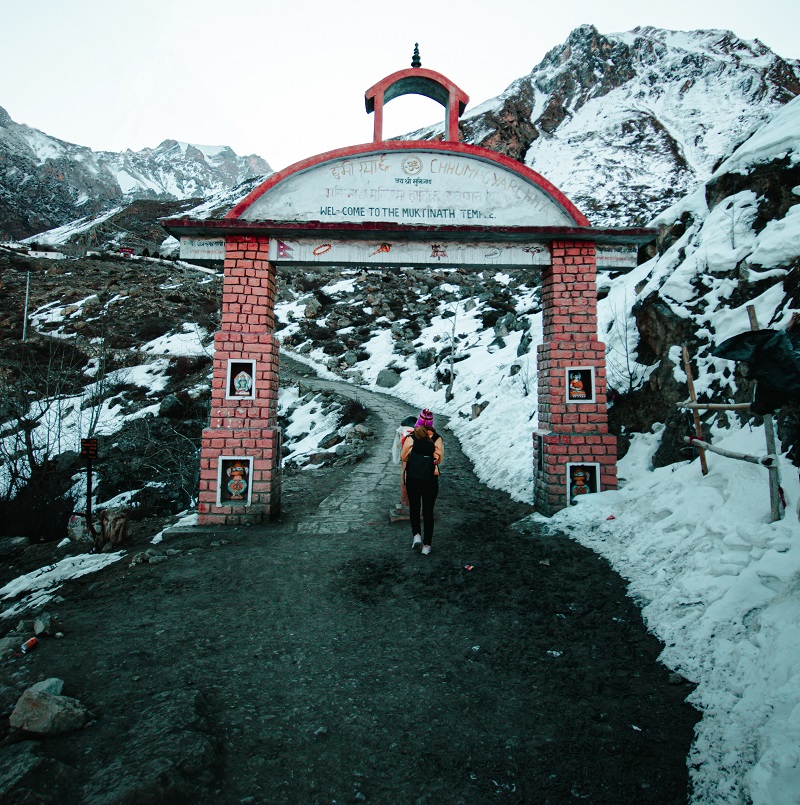- info@glopri.com
- Mon - Sat 8:00 - 18:00. Sunday CLOSE

Pakistan, surrounded by snowcapped peaks like Karakorum holds wonders to be explored within its borders. Yet while countries across the region capitalize on their unique landscapes Pakistan’s tourism remains untapped. Pakistan being a land of cultural depth and dramatic beauty still suffers from image issues. As the country is witnessing an increase in tourism both domestically and internationally it is important to focus on a sustainable tourism model. As sustainable tourism is paramount it balances the economy with environment and cultural preservation which is of great importance to protect the natural heritage of Pakistan. Moreover, the implications of sustainable tourism transcend beyond the border of Pakistan which has broader impacts on the regional security and stability of the region. Environmental degradation and resource scarcity pose immense challenges in the South Asian region, with the help of Pakistan’s approach to sustainable tourism a model of regional cooperation can be set through which conflicts can be prevented under the regional security complex framework. Tourism provides a huge economic opportunity for Pakistan especially in areas such as Khyber Pakhtunkhwa, Balochistan, and Gilgit Baltistan as it provides job opportunities to the local people of the area, especially to artisans, house owners, and restaurants.
Even though tourism has its own benefits due to unmanaged tourism there have been significant environmental risks involved such as deforestation, pollution, and disruption of the ecosystem. Hunza Valley had a surge in tourism in 2019 which led to an increase in waste and strain on limited resources. Pakistan has been trying to work on balancing preservation such as in the case of fairy meadows, as it is a spectacular attraction near Nanga Parbat which attracts thousands of visitors. Even so, this huge footfall has led to significant environmental strain, and this high level of tourism has led to illegal logging and poor waste management. In response to this, the government and the local population have led to implementing small-scale eco-friendly measures such as policies to leave no trace of waste, restrictions on the use of plastic, and regulation of waste management and disposal. However, these small-scale initiatives are insignificant without a coherent large-scale strategy for sustainable tourism.
In the South Asia environment, climate change and resource scarcity have a significant impact on regional security. According to the concept of regional security complex, the security of states in a region is interconnected and actions of one state can impact the neighboring states. This is true and significant in the case of South Asia as it shares threats like environment degradation, climate change, and shared resources these threats tend to make the entire region vulnerable to catastrophes such as the 2022 floods in Pakistan and the 2024 floods in India. If Pakistan pursues sustainable tourism keeping resource management in mind it can mitigate these challenges
As environment and security are interconnected it makes sustainable tourism an important factor, the issues such as deforestation and water scarcity do not only impact individual countries but the entire ecosystem as example the forests in Gilgit Baltistan are significant for the ecosystem in both Pakistan and India as it helps to regulate water flow in the river Indus through prevention of soil erosion. Due to tourism expansion in these areas without sustainable measures, there is a risk of overuse of resources, habitat destruction, and water pollution increases, which would lead to long-term security challenges. The excessive unchecked tourism leads to resource depletion which would cause a human security risk as the inhabitants would suffer. This would cause socioeconomic instability and displacement. If Pakistan adopts a sustainable tourism policy this could lead to mitigation of such issues and environmental cooperation in the region. To promote tourism and regional stability Pakistan should work on recommendations such as community-based tourism which would help to preserve local traditions as the local communities would be involved to promote sustainable tourism and would have a direct benefit. Pakistan should try to shift entirely towards eco-friendly infrastructure like plastic roads, especially in tourist destinations as countries like Bhutan and Nepal have moved to eco-friendly infrastructure like environment-friendly railroads and road connectivity projects. With the help of sustainable tourism Pakistan can promote environment protection and regional cooperation as Pakistan can work with neighboring countries to develop ecotourism zones which can lead to regional unity and reduce the chances of cross-border conflict.